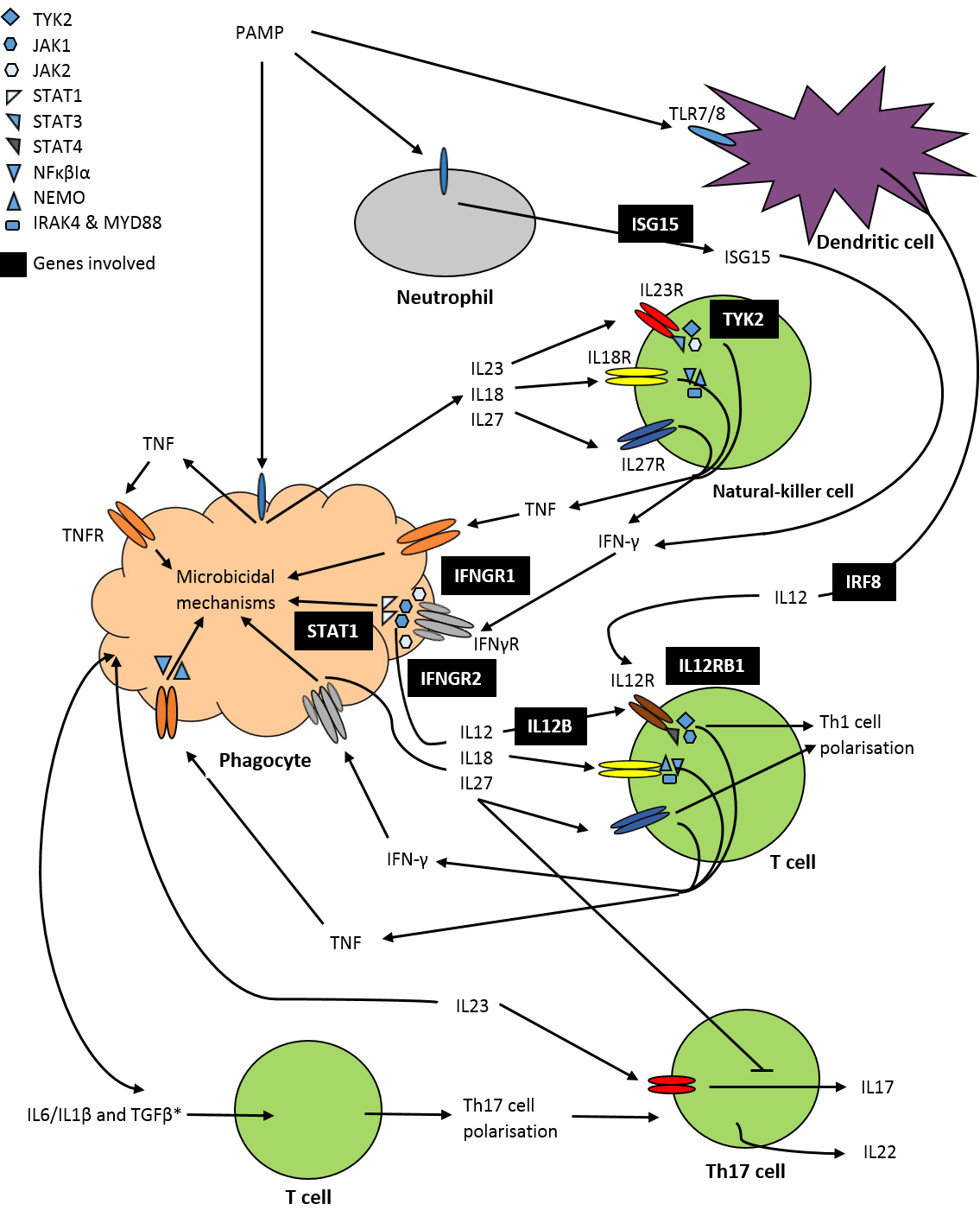Primary Immuno-Deficiency Primary
immunodeficiencies (PIDs) are a group of more than 130 disorders
affecting the development and function of the immune system. Generally,
PIDs are monogenic disorders with a Mendelian pattern of inheritance. Of
particular interest to our research are PIDs that are known to cause
increased susceptibility to mycobacteria. These include Mendelian
Susceptibility to Mycobacterial Disease (MSMD), Chronic Granulomatous
Disease (CGD) and Severe Combined Immunodeficiency (SCID).
Primary
immunodeficiencies (PIDs) are a group of more than 130 disorders
affecting the development and function of the immune system. Generally,
PIDs are monogenic disorders with a Mendelian pattern of inheritance. Of
particular interest to our research are PIDs that are known to cause
increased susceptibility to mycobacteria. These include Mendelian
Susceptibility to Mycobacterial Disease (MSMD), Chronic Granulomatous
Disease (CGD) and Severe Combined Immunodeficiency (SCID).
We
believe that genes that are mutated to cause these PIDs would be
plausible candidate genes for increased susceptibility to tuberculosis
in the general population. Several MSMD, CGD and SCID-causing genes have
been identified and our research team will assess these genes for
increased susceptibility to tuberculosis in our large panel of TB
patients.
While many mutations for MSMD, CGD and SCID have
previously been identified, a large number of affected individuals
exists for whom no gene mutation has been found. In collaboration with
the National Health Laboratory Service’s Immunological Unit as well as
the Department of Clinical Genetics and Genetic Counselling, we are
using next generation exome sequencing to identify novel MSMD, CGD and
SCID-causing mutations.
The novel mutations will inform treatment for these patients, and will also be assessed for their role in increased TB susceptibility in the general population.

